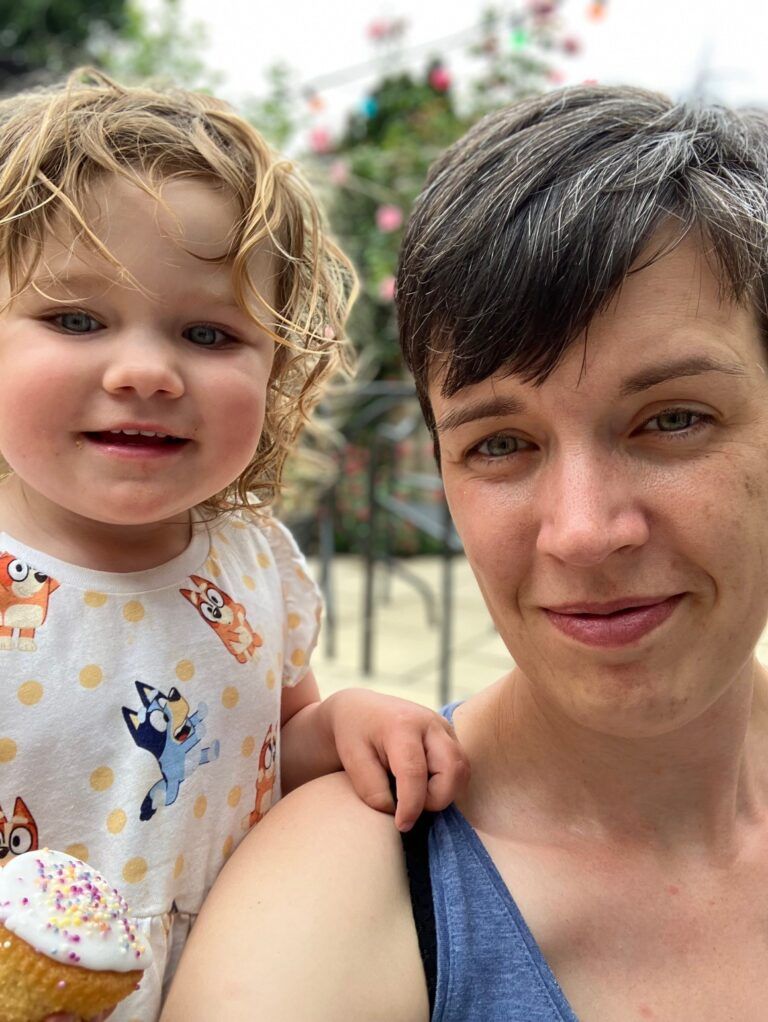
Image credit: Shutterstock
Heart attack risk decreased in new mothers by self-monitoring blood pressure at home
Self-monitoring blood pressure after giving birth could help to cut new mothers’ risk of future heart disease and strokes, according to new research by Oxford researchers.
The study, funded by the BHF and supported by the NIHR Oxford Biomedical Research Centre (BRC), could be the first step towards blood pressure self-monitoring becoming routinely recommended for women who have high blood pressure during pregnancy, to prevent future health problems.
The research was published in the Journal of American Medical Association (JAMA) and presented at the American Heart Association’s Scientific Sessions in Philadelphia.
Worldwide, around 10 per cent of pregnancies are hypertensive, where the mother is affected by a dangerous increase in blood pressure. Around a third of women who experience a hypertensive pregnancy will go on to start treatment for high blood pressure within 10 years, and they have a significantly higher long-term risk of heart attack, stroke and heart failure.
Largest trial of its kind
In the largest trial of its kind, the Oxford research team have found that taking daily blood pressure readings at home and personalising medication doses in the weeks after giving birth improves blood pressure control for the first year after a hypertensive pregnancy.
While further research is needed to see if these changes are maintained long term, the researchers hope that self-monitoring blood pressure will reduce future risk of strokes and heart attacks for women who develop high blood pressure during pregnancy.
In the study, led by Dr Jamie Kitt and Professor Paul Leeson of Oxford's Radcliffe Department of Medicine, 220 new mothers who had developed high blood pressure during pregnancy were treated with either blood pressure self-monitoring at home, or usual care. Those in the self-monitoring group took their blood pressure every day and entered their readings into a smartphone app. They then received advice based on their reading to either reduce, maintain or increase their dose of blood pressure-lowering medication.
Those in the usual care group had a blood pressure review with a community midwife around 10 days after giving birth, and a review at six to eight weeks with their GP. All the women in the study were followed up for nine months after giving birth.
Around eight months after giving birth, average blood pressure in the self-monitoring group was lower than in the usual care group; 126/82mmHg compared to 131/86 mmHg, respectively. Most of the self-monitoring group had stopped taking their blood pressure lowering medication by this stage.
The researchers say that reducing blood pressure by as little as 5mmHg, as seen in this study, can delay the development of high blood pressure by many years. Over a lifetime this can also reduce the risk of heart attacks by 20 per cent, and strokes by 40 per cent.
In addition, just eight of those in the self-monitoring group had a hospital re-admission related to high blood pressure in the two weeks following discharge, compared to 29 in the usual care group, suggesting that this approach could also help to relieve pressure on NHS care.
A larger trial is set to begin next year to assess how best to deliver blood pressure self-monitoring to more women after a hypertensive pregnancy across the NHS.
Encouraging findings
Dr Jamie Kitt, who ran the trial, said: 'Our earlier research identified a critical six-week window after a hypertensive pregnancy to ‘reset’ a new mother’s blood pressure and reduce their risk of future heart problems.
'This study shows us how we can achieve this reset. As we investigate the best way to provide this care on a large scale, we hope our findings will act as a reminder to healthcare professionals and encourage them to keep a close eye on the new mothers under their care after they have been discharged from hospital.'
Professor Marian Knight, Professor of Maternal and Child Population Health at the University of Oxford added: 'Cardiovascular disease remains the leading cause of women’s deaths during and immediately after pregnancy in the UK. But we also know that complications experienced during pregnancy can have a life-long effect on women’s cardiovascular health.
'This study, underpinned by the work of the NIHR Oxford BRC, shows how we can improve women’s long-term health by keeping blood pressure under control in the weeks after they have given birth. Making sure women get the individualised postnatal care they need – with particular attention to controlling blood pressure in women who have had pre-eclampsia or other types of hypertension – will have health benefits long into the future.' Professor Knight is the Oxford BRC’s Co-theme Lead for Cardiovascular Medicine and Scientific Director for NIHR Infrastructure.
Dr Sonya Babu-Narayan, BHF Associate Medical Director and consultant cardiologist said: 'High blood pressure during pregnancy is a known risk factor for future heart attacks and strokes, but shockingly many women don’t get told this at the time or aren’t asked about it at health checks later in life.
'This study shows that empowering women with the right knowledge, tools and medical support after a hypertensive pregnancy leads to better blood pressure. These encouraging findings suggest self-monitoring blood pressure could even stop future heart attacks and strokes, and we look forward to understanding how this approach could benefit women in the long-term.'
Becki’s story
When Becki Ellsmore, from Didcot in Oxfordshire, fell pregnant in 2020, she expected to 'sail through'. But halfway through her pregnancy, her doctors spotted her blood pressure was dangerously high and needed to be monitored. A few days after giving birth, Becki was invited to take part in the trial, and was put into the self-monitoring group. Despite the chaos of life with a newborn, she found time to take her daily blood pressure readings. Becki, now 40, has been off her blood pressure medication for a little over a year.
 Becki Ellsmore with Remi
Becki Ellsmore with RemiImage credit: NIHR Oxford BRC
She says: 'I’ve never had any health problems before, and I’d had no symptoms at all so it was a shock when the doctors told me my blood pressure was skyrocketing. They put me on medication and started monitoring me closely, then I was hospitalised shortly before my daughter Remi was born in March 2021 as I’d developed pre-eclampsia.
'As part of the trial, I submitted my readings in the app and the researchers were able to adjust my medication accordingly. Rather than me having to call my GP surgery or make an appointment, I could send a quick e-message asking them to make the change which had already been added to my medical records by the researchers.
'Before I had Remi, I didn’t know much about high blood pressure or pre-eclampsia. Having read up about the long-term effects it’s really scary, but hopefully being part of this study will have helped to reduce my risk. I was definitely motivated by Remi. If she chooses to have a baby one day, she could end up having the same kinds of problems, but hopefully by then we’ll know much more about how to care for women with pre-eclampsia. I hope this study will lead to more women being taken care of the way I was.'
The full paper, 'Long-Term Blood Pressure Control After Hypertensive Pregnancy Following Physician-Optimized Self-Management: The POP-HT Randomized Clinical Trial', can be read in the Journal of American Medical Association (JAMA).
 Landmark study definitively shows that conservation actions are effective at halting and reversing biodiversity loss
Landmark study definitively shows that conservation actions are effective at halting and reversing biodiversity loss
 Researchers find oldest undisputed evidence of Earth’s magnetic field
Researchers find oldest undisputed evidence of Earth’s magnetic field
 Honorary degree recipients for 2024 announced
Honorary degree recipients for 2024 announced
 Vice-Chancellor's innovative cross-curricular programme celebrated
Vice-Chancellor's innovative cross-curricular programme celebrated
 New database sheds light on violence in Greek detention facilities
New database sheds light on violence in Greek detention facilities